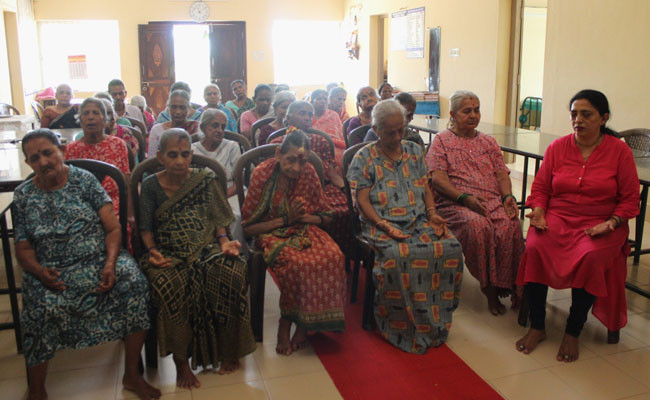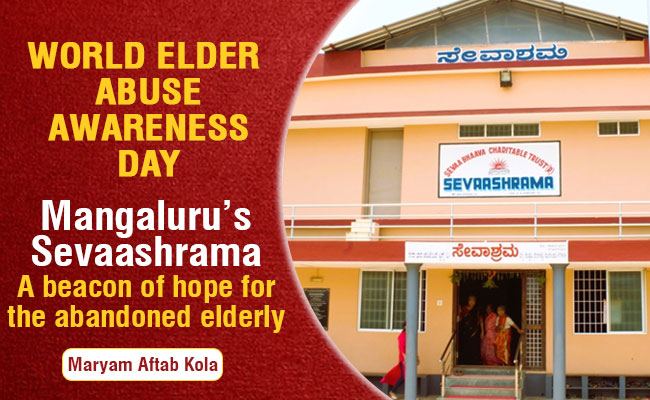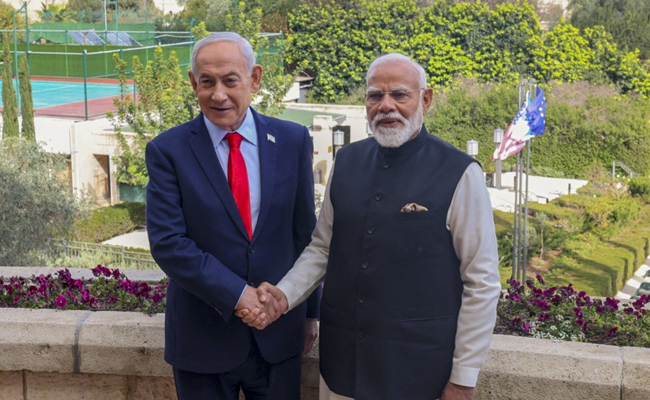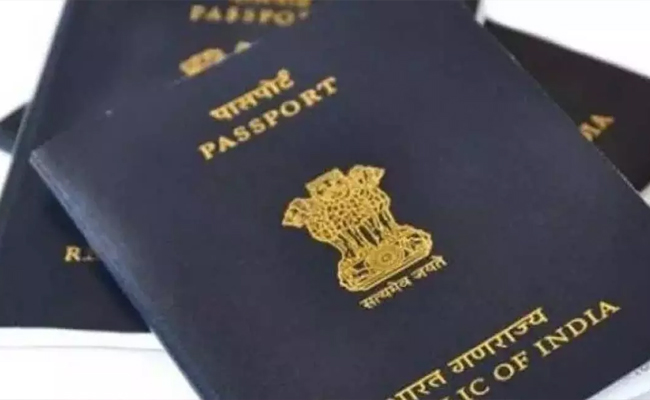In the twilight years of their lives, elderly individuals often face daunting challenges, with the unfortunate reality being that many are deprived of the privilege of being surrounded by their loved ones. The destitute - people without food, money or home - face the brunt of neglect, abandonment, abuse, violence, unfair treatment, denial of basic needs, and often seek shelter wherever they possibly can.
On the occasion of World Elder Abuse Awareness Day, observed every year on June 15, we present the inspiring tale of Sevaashrama, an old age home that provides solace to the elderly who have been shunned and abandoned by their own families. Through this poignant story, we glimpse into the lives of those forgotten souls who have found a glimmer of hope amidst their adversity.
Nestled amidst the greenery of Belma village, on the outskirts of Mangaluru, Sevaashrama stands as a beacon of compassion. This home for the destitute, run by the self-funded Sevaa Bhaava Charitable Trust in collaboration with donations from philanthropists, aims to provide shelter, care, and a fresh lease on life to elderly men and women through selfless service.

Geeta R Shetty, the trust's correspondent and an unwavering pillar of strength, has dedicated her life to serving marginalized communities. Recounting the incident that ignited her mission, she vividly recalls the day she stumbled upon a man in the heart of Mangaluru City, desperately seeking help. Despite her best efforts to secure his placement in orphanages, she faced insurmountable barriers in the form of exorbitant deposit fees. It was this heart-wrenching encounter that sowed the seeds of Sevaashrama in 2013. Today, as the home enters its tenth year, it has become a sanctuary for 37 elderly inmates who once languished in the shadows of society.
A typical day at Sevaashrama begins at 6 am with a comforting glass of hot water, followed by meditation and gentle floor exercises. The residents then partake in a nourishing breakfast, fortifying them for the day ahead. Snack time arrives around 11 am, providing an opportunity for leisurely interactions, laughter, and even a friendly game of ludo. Lunch, served promptly at 1 pm, is followed by a much-needed rest period. In the evening, after indulging in a traditional Ayurvedic drink called ragi malt or kashaaya, the residents embark on rejuvenating walks, tend to gardens, or care for the cherished cows that have found a home at Sevaashrama. As the day draws to a close, a hearty dinner is served, accompanied by comforting hot milk. By 9:30 pm, the residents retire for a well-deserved rest.
While the residents find comfort in their daily routines, it is essential to acknowledge the deep scars that accompany them. Many arrive at Sevaashrama bearing physical ailments and emotional trauma, remnants of the difficult paths they have traversed. Recognizing this, the trust conducts weekly counseling sessions, offering a space for healing and emotional support. Inmates like the woman from Goa, who found solace at Sevaashrama after enduring her son's neglect due to alcohol abuse, share their stories, finding solace in the empathetic ears that listen.
To address the healthcare needs of the elderly, doctors from the renowned KMC visit Sevaashrama once a month, conducting thorough medical check-ups. The prevalence of eye-related issues among the residents prompted the trust to organize nearly 25 cataract surgeries, restoring the gift of clear vision to these deserving souls.

Sevaashrama cherishes the individuality of its residents and encourages their active participation in daily chores, gardening, cooking, and other activities. Geeta affectionately refers to them as "grannies" and takes pride in their shared moments of joy, including singing and dancing. Their spirits are palpable as they enthusiastically showcase their talents, bridging the gap between their painful pasts and a present filled with newfound happiness.
The Sevaashrama, which previously catered exclusively to women, recently marked a significant milestone in its decennial year with the inauguration of a new block for destitute men. This expansion ensures that more abandoned elderly individuals can find refuge within the compassionate walls of Sevaashrama.
Amidst the adversity that has marked their lives, these residents hold onto hope and faith. In an environment devoid of toxicity and cruelty, they discover a sense of relief and belonging. As an inmate poignantly expresses, "Even my own children did not care for me the way this home has. Sevaashrama is truly my home."
Although the trust operates without government aid, its unwavering dedication stems from the generosity of philanthropists and compassionate individuals who extend their support. Geeta emphasizes that monetary contributions, while crucial, are not the sole measure of support. She urges readers to spend time with the elderly residents, recognizing the immeasurable value of human connection and compassion.
Amidst her tireless efforts, Geeta harbors concerns about the future of Sevaashrama. Her fervent wish is for the home to remain a sanctuary exclusively dedicated to those in need, free of charge, and untouched by the commercialization that could erode its true purpose.
Life often presents challenges and inflicts pain upon us. Yet, in the face of uncertainty, the elderly residents of Sevaashrama exemplify the strength and resilience of the human spirit. Their journey resonates with the power of kindness and the courage to rise above adversity. As the sun sets on their lives, these remarkable individuals refuse to be overlooked, as they deserve to be treated with the dignity and respect that Sevaashrama so ardently provides.
Sevaashrama's journey is a story of profound human compassion, reminding us of the importance of uplifting the forgotten elderly members of our society. In a world that often forgets its elders, this humble abode shines brightly as a beacon of hope and humanity. As we reflect on their remarkable resilience, let us be inspired to embrace the vulnerable and foster a world that cherishes and supports our elderly population.

Let the Truth be known. If you read VB and like VB, please be a VB Supporter and Help us deliver the Truth to one and all.
Jerusalem (PTI): India and Israel on Thursday elevated their "time-tested" relationship to a special strategic partnership and agreed to soon firm up a "mutually beneficial" free trade deal even as Prime Minister Narendra Modi strongly backed the Gaza peace initiative, asserting that humanity must never become a victim of conflict.
Following talks between Modi and his Israeli counterpart Benjamin Netanyahu, the two sides inked a plethora of agreements to expand cooperation in areas of trade, agriculture, energy, cyberspace and digital payment.
India and Israel also vowed to expand their already close defence partnership by working towards joint development and joint production of military hardware under the framework of the transfer of technologies.
In his media statement, Modi said India's security interest is linked to peace and stability in the Middle East, adding that New Delhi fully supports the Gaza Peace Initiative.
"India's stance is clear: humanity must never become a victim of conflict. A path to peace has been created through the Gaza Peace Plan. India has fully supported these efforts," he said.
"In the future as well, we will continue dialogue and cooperation with all countries," he said.
PM Modi landed in Israel on Wednesday on a two-day visit. It is his second visit to Israel in nine years.
In his remarks, the prime minister said India and Israel have a united view that there is no place for terrorism in the world and both sides stand shoulder-to-shoulder in countering terrorism and its supporters.
"Our relationship is founded on the strong bedrock of deep trust, shared democratic values, and human sensitivities. Our bond has stood the test of every trial of time," he said.
"Today, we have taken the historic decision to elevate our time-tested partnership to the status of a 'Special Strategic Partnership'," he said.
The prime minister also announced the establishment of an India-Israel critical and emerging technologies partnership to impart a new momentum for cooperation in areas of artificial intelligence, quantum, and critical minerals. "I am pleased that an agreement has been reached for the use of UPI in Israel," he said.
The prime minister, referring to the threat of terrorism, said India and Israel will continue to confront the menace unitedly.
"India and Israel are completely clear that there is no place for terrorism in the world. In any form, in any expression, terrorism cannot be accepted," he said.
"We have stood shoulder-to-shoulder in opposing terrorism and its supporters, and we will continue to do so," he added.
India and Israel also discussed the implementation of the India-Middle East Europe Economic Corridor (IMEC) and cooperation under the framework of I2U2 (India-Israel-UAE-USA).





